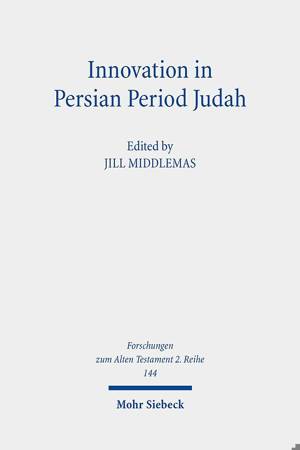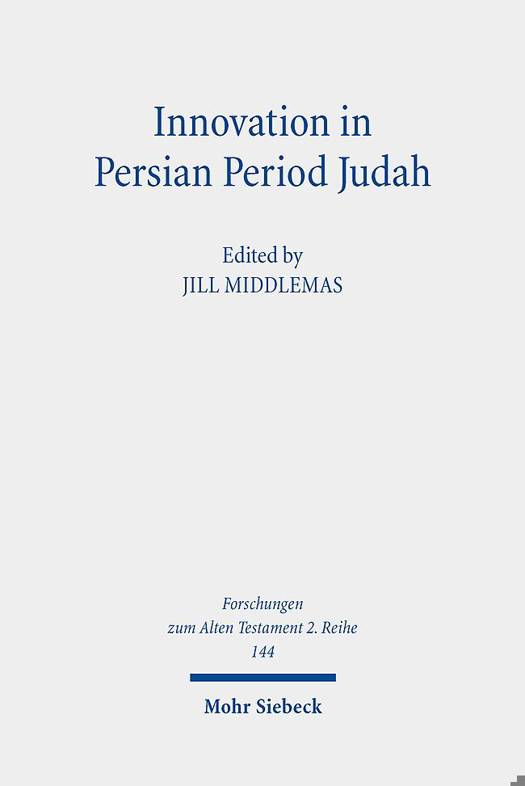
- Afhalen na 1 uur in een winkel met voorraad
- Gratis thuislevering in België vanaf € 30
- Ruim aanbod met 7 miljoen producten
- Afhalen na 1 uur in een winkel met voorraad
- Gratis thuislevering in België vanaf € 30
- Ruim aanbod met 7 miljoen producten
Zoeken
Innovation in Persian Period Judah
Royal and Temple Ideology in Comparative Perspective
€ 88,45
+ 176 punten
Omschrijving
The essays in this volume, which has emerged from the Persian Period Seminar of the Society of Biblical Literature, explore biblical and comparative evidence to show how the Iron Age institutions of monarchy and temple shifted in both form and function in the Persian period. The weight given to the Davidic monarchy and Jerusalem temple in the historiography of the Hebrew Bible/Old Testament invites a new examination of attitudes towards the same in Achaemenid Yehud in comparative perspective. The essays uncover new attitudes relating to the monarchy and cultic site as well as the influence, but also rejection of, Persian ideas and contribute to scholarly interest in the extent of Persian influence on the literature of ancient/biblical Israel. As such, the volume participates in, lays the groundwork for, and also shapes discussions of Persian period Yehud and its literature.
Specificaties
Betrokkenen
- Uitgeverij:
Inhoud
- Aantal bladzijden:
- 224
- Taal:
- Engels
- Reeks:
- Reeksnummer:
- nr. 144
Eigenschappen
- Productcode (EAN):
- 9783161612367
- Verschijningsdatum:
- 1/09/2023
- Uitvoering:
- Paperback
- Formaat:
- Trade paperback (VS)
- Afmetingen:
- 231 mm x 155 mm
- Gewicht:
- 680 g

Alleen bij Standaard Boekhandel
+ 176 punten op je klantenkaart van Standaard Boekhandel
Beoordelingen
We publiceren alleen reviews die voldoen aan de voorwaarden voor reviews. Bekijk onze voorwaarden voor reviews.










